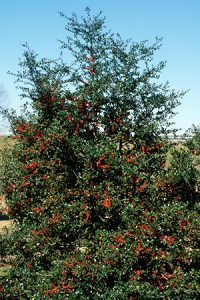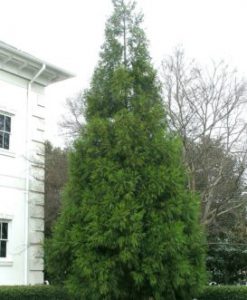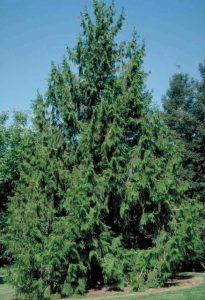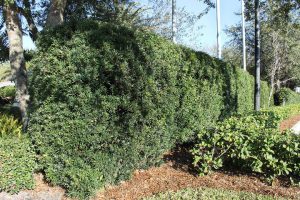Everyone likes their privacy. Usually, a large eight-foot privacy fence is built for that reason. That option tends to be expensive. What is a different approach for a similar result? A natural wall!
One advantage of having a natural wall is that a homeowner has options when choosing plants. When it comes to choosing plants for a natural wall, the first thing to decide is if a wall needs to be year round or seasonal. Size would be the next factor to determine.
Japanese Cedar (Cryptomeria japonica) has the capability of growing 40 to 60 feet in height and 15 to 20 feet in width. There are some smaller varieties to pick from, but where is the fun in having a small wall?
Another plant option that would require pruning, but make an excellent natural wall is Japanese Yew (Podocarpus macrophyllus). This specimen will grow 30 to 40 feet tall and 20 to 25 feet in width if left unpruned, however, it is a slow grower. Yaupon Holly (Ilex vomitoria) comes in several selections of various sizes so the height range is 3 to 20 feet. The width range is 5 to 15 feet.
The Emerald Green Arborvitae is a fast grower that would be ideal for the homeowner who does not want a tall wall. It keeps a tight pyramid shape that will reach heights up 12 to 14 feet and needs 4 to 6 feet of space. Green Giant Arborvitae or Thuja Giant (Thuja standishii x plicata ‘Gre) is an excellent tree to pick for a natural wall. It has the capability to reach 50 to 60 feet in height and spreads out 12 to 20 feet at maturity. This arborvitae is considered to be a fast grower since it can increase more than 24” per year.
The larger selections of Loropetalum are other shrubs that homeowners have used to establish their privacy wall. One can expect a height up to 15 feet if left unpruned and pinkish to purple strap-like flowers, which makes for a great wall height.

A yaupon holly cultivar (Ilex vomitoria ‘Roundleaf’). John Ruter, University of Georgia, Bugwood.org Creative commons license.
These plants are some of the selections homeowners may choose to start their natural walls. Given time, these shrubs will develop into a dense screen for the interruption of unwanted light or noise. To learn more about the aforementioned plant material, contact your local UF / IFAS extension agent.
- Natural Walls - May 27, 2019
- A Bloom Prettier than the Moon - April 16, 2019
- Tree Replanting Considerations - March 26, 2019



